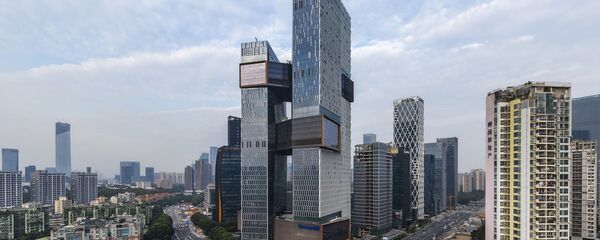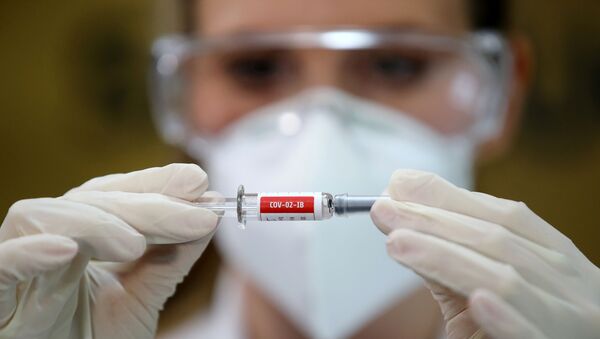China should cut medicine and drug exports to the United States if Washington blocks Beijing's access to semiconductors, one of the mainland's top economists, Li Daokui told the South China Morning Post on Wednesday.
Despite Beijing not using medicines to pressure the US, the Chinese government could block access to some supplies in retaliation for Washington's trade war on Chinese tech firms, he said.
— Finbarr Bermingham (@fbermingham) August 25, 2020
US firms heavily rely on medicines imported from Chinese companies, which US president Donald Trump and Democratic challenger Jo Biden plan to address amid chaos from the ongoing coronavirus pandemic, according to the SCMP.
Both candidates in the upcoming elections in November said they would move production of key medical supplies back to the US in a bid to reduce dependence on Chinese pharmaceuticals, the report added.
“For vitamins and antibiotics, more than 90 per cent of their raw materials are produced in China. The US will definitely not be able to produce them in the short term. Of course, we will not take the lead in doing this, but if the US dares to play dirty, we have these countermeasures,” Li Daokui told the SCMP.
US officials may further "suppress" Chinese firms like Huawei Technologies and others via sanctions but a full ban on chip suppliers would be a "nuclear option", the Tsinghua University finance professor said.
“Disrupting the Chinese economy is equivalent to picking a fight with the Chinese people on the food issue. China can then pick a fight with the US on the supply of medicines, right?” he added.
China should also prepare for a "very realistic" threat of its banks being cut from the SWIFT international banking system amid tensions over Hong Kong's national security law, he said, adding that such measures would be "economic terrorism".
Li, a former member of China's central banking monetary policy advisory committee, urged both sides to communicate.
“We are open to negotiations, but if you are unreasonable, we will fight you to the end at any cost,” he concluded.
The news comes as Beijing and Washington are set to discuss 'phase one' trade talks, which Prof Li said would be "an era of intense game playing", with the former set to raise concerns on Washington's trade war as well as Trump's forced sale of TikTok owner ByteDance to a US tech company such as Microsoft or Oracle, among others.

President Trump also ordered ByteDance to cut a portion of the sale to the US Treasury, sparking backlash from the Chinese startup, who later launched a lawsuit against the US government.
The US Office of Foreign Assets Control also announced a fresh round of sanctions against the Xinjiang Production and Construction Corps (XPCC) and three officials in the Chinese conglomerate, citing alleged human rights abuses in the westernmost autonomous region.
But the move has forced Chinese authorities to pledge $1.4tn in investment into its mainland tech sector, namely via companies such as Shanghai-based Semiconductor Manufacturing International Corp (SMIC), in major push for self-sufficiency in producing domestic technologies, including processors, artificial intelligence, fintech and infrastructure.





